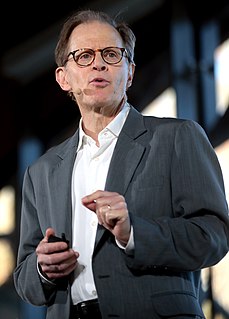A Quote by Norm Phelps
When virtuous mental attitudes, like mindfulness, respect, and compassion, are invoked to justify nonvirtuous acts like hunting, fishing, and eating animal products, the mental attitudes are insincere. They are self-deceptions that we create to justify habits that in our hearts we know are wrong, but to which we have become attached.
Related Quotes
If you want to become physically stronger, you'll need healthy habits - like going to the gym. You'll also have to give up unhealthy habits - like eating junk food. Building mental strength requires healthy habits - like practicing gratitude - while also giving up unhealthy behavior, like giving up after the first failure.
Habits start out as off-hand remarks, magazine advertisements, friendly hints, experiments - like flimsy cobwebs with little substance. They grow with practice, layer by layer - thought on thought - fused with imagination and emotion until they become like steel cables - unbreakable. Habits are attitudes which grow from cobwebs into cables that control your everyday life. Self-discipline alone can make or break a habit. Self discipline alone can effect a permanent change in your self image and in you. Self-discipline achieves goals. Self discipline is not 'doing without,' it is 'doing within.'
Establishing healthy habits - like eating a healthy diet, getting plenty of sleep, and participating in regular exercise - can also go a long way to improving how you feel. Similarly, getting rid of destructive mental habits, like engaging in self-pity or ruminating on the past, can also do wonders for your emotional well-being.
Recent studies of mindfulness practices reveal that they can result in profound improvements in a range of physiological, mental, and interpersonal domains in our lives. Cardiac, endocrine, and immune functions are improved with mindfulness practices. Empathy, compassion, and interpersonal sensivity seem to be improved. People who come to develop the capacity to pay attention in the present moment without grasping on to their inevitable judgments also develop a deeper sense of well-being and what can be considered a form of mental coherence.
The animal kingdom exhibits a series of mental developments which may be regarded as antecedents to the mental development of man, for the mental life of animals shows itself to be throughout, in its elements and in the general laws governing the combination of the elements, the same as the mental life of man.
It is that the individual has within him or herself vast resources for self-understanding, for altering the self-concept basic attitudes, and his or her self-directed behavior - and that these resources can be tapped if only a definable climate of facilitative psychological attitudes can be provided





































